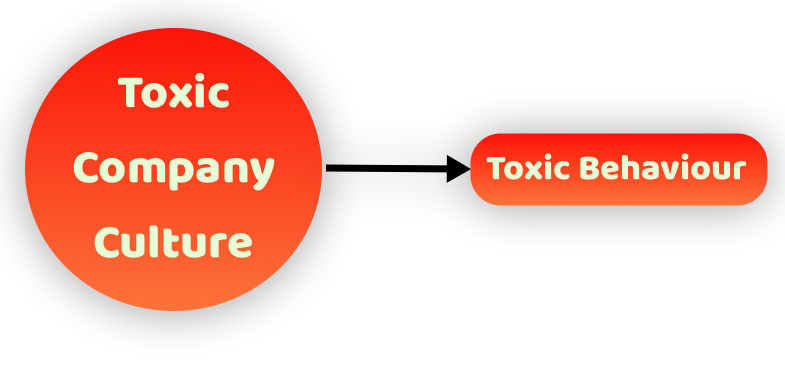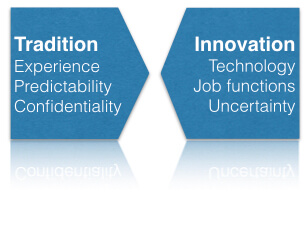This post is about employee satisfaction. More specifically about why it is so hard to achieve and why we continuously continue to do all the wrong things to increase employee satisfaction. My motivation to write this post comes from many of our clients, who don’t understand why their employees are leaving. That is despite they get a high salary and lots of benefits.
Last week we had a meeting with a client in the pharma industry who was deeply frustrated over the situation in his company. Financially, the company is doing very well and they need a wide range of highly skilled and specialised people to develop and produce their products. That is why employee satisfaction has always been on top of their agenda since the company was founded in the late 70’ies. They have grown nicely with only a single acquisition and they have refused all take-over proposals because they felt they had a unique company culture.
Until 5 years ago everything went fine. They were very good at attracting and retaining the right talent. That despite they are a relatively small company without any aggressive grown plans.
Strategic change destroyed the company culture
5 years ago they decided to sell major parts of the company to an investment company. Until then, the company had been family-owned. But no one of the next generation was interested in taking over. In fact, none of the 4 potential heirs wanted to work in the company at all. That in itself is not unusual. We have worked with many family-owned companies, who had to make the transition into a different ownership model. Most of them had chosen to establish a fund. But this company chose a very different model.
Previously, the company has always had a long-term focus. There was a primary focus on the customers, then the employees and then the economy. Like all other companies, they have had their ups and downs but they have always made a good profit, where most of it was re-invested into the company.
The innovation power of the company has always been high. The family who owned the company had the philosophy that the idea-generation was a collective matter in the organisation. So everyone was involved in everything. Of course, they made mistakes. But that is the price you pay when you want to be ahead of the competition and closer to the customers.
That philosophy together with the long-term focus and the inclusive leadership style developed a strong, resilient corporate culture. It created a culture where employee satisfaction was extremely high because the employees were intrinsically satisfied. They felt trusted and appreciated and there was a very high level of transparency in the organisation. Some of the employees we interviewed said they felt like being a part of the family.
That feeling is now gone. It literally disappeared overnight when the new owners announced the strategy and organisational setup. They went from a culture based on trust and confidence to a culture based on control and internal competition.
But what surprised me most was that the new CEO, who had asked us to help them out, didn’t have a clue where it went wrong. Their new CEO had the black belt in finance but knew nothing about people, what motivates – and de-motivates them.
At the first meeting with the employees where 350 of them were present, she presented the new strategy and performance measures. The strategic focus changed completely from customer focus as the main driver to short-term financial profitability. The intrinsic values that had tied the organisation together as a family were replaced with individual tangible target and internal competition. As she said in the presentation, ” We only have room for the best”.
After having interview some of the employees and middle managers and after having seen the video of her initial presentation I asked her: “Do you really think you can make a dog happy by wagging its tail?”
We had a discussion about what I meant by that and then she explained to me why they had bought the company. Of course, they bought the company to streamline as she said and sell it again within 2 – 3 years. It is, of course, a very valid objective. But it is naive to believe you can do that with a family-owned company that had developed an admirable, sustainable and resilient culture over several decades.
They are now in that situation that many of the key employees have left the company. Some have even formed a new start-up that potentially can pull a large number of employees when they are ready for that. The outlook for the company is far from promising as it has gone into a vicious circle.
After our initial assessment and discussion, she asked me if we would help them to a turn-around.
I said “no, thank you” because as Sun Tzu said, ” Never go into a battle you can’t win”. Had her attitude and freedom to adjust focus been different, we would have taken the assignment.

Dr Finn Majlergaard
CEO Gugin, Professor, Keynote Speaker, Author
- We align your corporate culture with your strategy.
- We take you safely through major changes in your organisation.
- We develop the crucial cultural intelligence in your organisation by training your employees and leaders
- We help you develop a competitive advantage with a unique corporate culture
Gugin has helped more than 600 companies around the world creating a winning corporate culture.

Fear as a Management tool? – Take the Survey
How often do you use fear to motivate? In the Gugin, we are about to start researching on how, when and why we as managers use fear as a management tool

Culture Audit – Get the truth about your organisation
Culture Audit - Discover the truth about your organisation Introduction Culture audit is the process where we describe all the aspects of a particular organisational culture. Gugin has developed and refined a comprehensive framework that gives us all the insight we...

The top 5 corporate culture challenges for managers
Here are the top 5 culture challenges managers of culturally diverse teams are facing according to Gugin’s research. Overcoming them is often a challenge too

Everyone in your organisation needs to be culturally intelligent. Here is why!
A toxic workplace culture can be devastating for an organisation, but fixing it can be challenging as we often get used to the toxic environment

Healthcare industry progress blocked by cultural challenges
Cultural challenges in the healthcare industry are blocking innovation and service improvements
